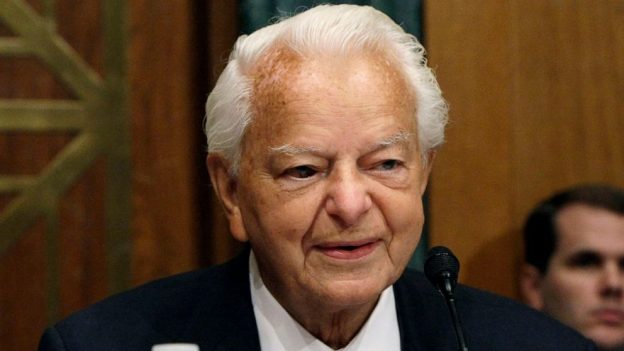I take some credit for pushing my good friend Tom DiLorenzo to respond to Glenn Beck’s “absolutely awful and sometimes untruthful” depiction of the antebellum South, “the subject of Lincoln, the War to Prevent Southern Independence, and its legacy.” Now, Tom has done so in spades. I’m especially relieved that in “Glenn Beck’s Lincoln Contradictions,” Tom has dispelled one of Beck’s most jarring tall tales:
“During one show he claimed to have read the actual original copy of The Confederate Constitution. I assume he made this assertion to show that he must really be quite the expert on the document. I didn’t believe him when he said this, and his next sentence proved to me that he did not read the document. The next sentence was the statement that the formal title of the document was ‘The Slaveholders’ Constitution . . .’ Anyone can look the document up at Yale University’s online Avalon Project, which warehouses all the American founding documents, commentaries, and more, to see for yourself that Beck was wrong about this.
Beck’s next false statement was that ‘I read it’ (the Confederate Constitution) and ‘it wasn’t about states’ rights, it was all about slavery.” Read it yourself online. It is a virtual carbon copy of the U.S. Constitution, with a few exceptions: The Confederate president had a line-item veto; served for one six-year term; protectionist tariffs are outlawed; government subsidies for corporations are outlawed; and the “General Welfare Clause” of the U.S. Constitution was deleted.
The act of secession was the very essence of states’ rights, contrary to Beck’s proclamation, for the basic assumption was that the states were sovereign. They delegated certain defined powers to the central government for their own mutual benefit, but all other powers remained in the hands of the people and the states, as stated in the Tenth Amendment. As sovereigns, they had a right to secede for whatever reason. If a state needed the permission of others to secede, as Lincoln argued, then it was not really sovereign.
The U.S. Constitution adopted a federal, not a national system of government. That is another way of saying a states’ rights system of government. The Confederate Constitution was nearly identical.
As for slavery, the Confederate Constitution was not essentially different from the U.S. Constitution as it existed at the time. Beck was grossly deceiving when he told his audience that the Confederate Constitution protected slavery while saying not one word about how the U.S. Constitution did the exact same thing.”
[SNIP]
Tom draws an interesting connection between “the idea of ‘collective salvation” that Obama himself espouses,” and the “Right’s “militarism fueled by Lincoln idolatry.”
To the Yankees, their “kingdom” was to be a “perfect society” cleansed of sin, the principal causes of which were slavery, alcohol, and Catholicism. Furthermore, “government is God’s major instrument of salvation” … “Collective salvation,” as opposed to the individualistic salvation that the Bible teaches, was what motivated the Yankees and their war on the South. This of course is exactly what Glenn Beck has been ranting and raving about recently when it is practiced by opponents of the neocon establishment – the exact same establishment that embraces the Lincolnite, Yankee millennialist fervor as one of its defining characteristics.
Much to his detriment (and to our benefit), Tom is ever vigilant about reminding spaced-out Americans just how bad the the Republicans—the drag queens of politics—are.
The column is “Glenn Beck’s Lincoln Contradictions.”
UPDATED I (July 17): I asked Prof. DiLorenzo to comment on Beck’s obsession with MLK. Beck appears incapable of mentioning the Founders without the obligatory mention of MLK, a minor philosopher by comparison. I also wanted to know whether it was true, as Beck has claimed, that we had black founding fathers. For sure, there were black good guys, but were these laudable men founding fathers?
“As I say in the article,” writes DiLorenzo, “it really is part of the neocon ideology to hate the South and Southerners. They were the only ones to ever seriously challenge the authority of the centralized Leviathan state that the neocons champion, therefore, they must be eternally demonized.
The neocons are also MLK and FDR worshipers, therefore, Beck cannot be too critical of either men if he wants to keep his job.
There were free black men who participated in the American Revolution, and should be considered to be a heroic as anyone else who did the same. But they weren’t Thomas Jefferson/James Madison/Patrick Henry/John Randolph caliber.
The idea that there was a black Jefferson who has been airbrushed from history is simply asinine.
UPDATE II (July 18): Al Sharpton said it. He inadvertently seconded the idea that the tea party’s impetus was a return to the original federal scheme of a weak central government and a stronger locality. The “Reverend” was making his unique contribution to the lynching of his fellow (predominantly white) Americans, when he blurted out that,
“‘the civil rights movement sought to pressure the federal government to step in when states were enforcing segregation laws, and the tea party’s focus on states’ rights puts people at risk. They talk about restoring dignity. They are really talking about restoring a time before the federal government intervened and protected the rights of people,’ Sharpton said.”
He went on to admit that, “this is not just about race. It is about how you see government.”
So, if I understood Sharpton, he just conceded that the idea of States’ rights is a matter of political philosophy, and not necessarily of race.
Al probably forgot his shtick for a moment: his ilk equate states rights (and everything else) with racism. In truth, “The issue of segregation or racism … is intellectually independent of states’ rights. The reason for the mistaken conflation of states’ rights and segregation resides with the same propagandists who successfully equate, for the purposes of discrediting, the right of secession with an alleged support for slavery.”

